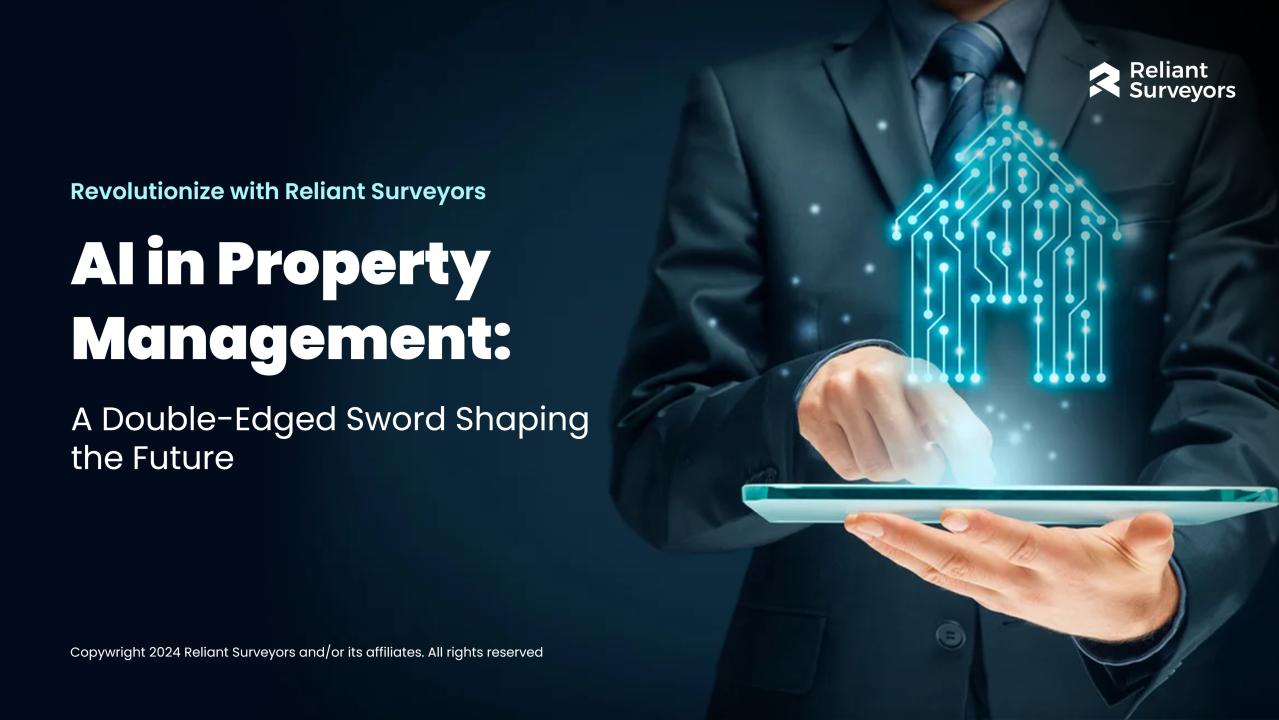
AI in Property Management: A Double-Edged Sword Shaping the Future
Artificial Intelligence (AI) is revolutionizing the property management industry, offering transformative benefits while also presenting significant challenges. As AI technologies advance, they are increasingly integrated into property management practices, reshaping how properties are managed and experienced. However, this evolution comes with both opportunities and potential pitfalls.
Transformative Benefits of AI in Property Management
- Enhanced Operational Efficiency:
- Automation of Routine Tasks: AI can automate routine administrative tasks such as scheduling maintenance, processing rent payments, and handling tenant inquiries. This reduces the workload for property managers and minimizes human error.
- Predictive Maintenance: AI-driven analytics can predict when maintenance is needed based on data from sensors and historical trends, preventing costly repairs and extending the lifespan of property assets.
Improved Tenant Experience
- Personalized Interactions: AI-powered chatbots and virtual assistants can provide 24/7 support, offering tenants immediate responses to queries and requests. This enhances tenant satisfaction and reduces response time.
- Smart Home Integration: AI facilitates the integration of smart home technologies, allowing for automation of lighting, heating, and security systems. This not only improves convenience but also promotes energy efficiency.
Data-Driven Decision-making
- Advanced Analytics: AI tools can analyze large volumes of data to provide insights into market trends, tenant behavior, and property performance. This enables property managers to make informed decisions and optimize their strategies.
- Dynamic Pricing Models: AI algorithms can adjust rental prices based on factors such as market demand, property features, and competitor rates, helping property owners maximize revenue.
Challenges and Considerations
- Data Privacy and Security:
- Sensitive Information: The use of AI involves handling large amounts of personal and financial data. Ensuring robust data security measures is crucial to protect tenant information from breaches and misuse.
- Regulatory Compliance: Property managers must navigate regulatory requirements related to data privacy, such as GDPR and CCPA, to avoid legal repercussions and maintain tenant trust.
- Implementation Costs:
- High Initial Investment: Integrating AI technologies into property management systems can require a significant upfront investment. Smaller property management firms may find it challenging to afford these costs.
- Ongoing Maintenance: AI systems require continuous updates and maintenance to remain effective. This can add to operational expenses and necessitate specialized knowledge.
- Dependence on Technology:
- System Reliability: Over-reliance on AI systems can be risky if these systems fail or encounter technical issues. Property managers must have contingency plans to address potential disruptions.
- Skill Gaps: Property management professionals may need to acquire new skills to effectively use and manage AI technologies. Training and adaptation are essential to fully leverage AI’s capabilities.
Conclusion
AI in property management represents a powerful tool that can significantly enhance operational efficiency, tenant satisfaction, and decision-making. However, it also brings challenges related to data privacy, costs, and technological dependence. As the industry continues to evolve, property managers must carefully weigh these factors and adopt AI solutions that align with their strategic goals while addressing potential risks. Balancing innovation with practical considerations will be key to harnessing AI's full potential in shaping the future of property management.
Reliant Surveyors leverages cutting-edge technologies to provide expert valuation, advisory, and consultancy services tailored to the real estate sector. Our comprehensive suite of services includes site preparation, procurement management, and quality control, ensuring seamless project execution from start to finish. With a focus on regulatory compliance and stakeholder communication, we deliver accurate and actionable insights, enhancing decision-making and operational efficiency in the dynamic property management landscape.











